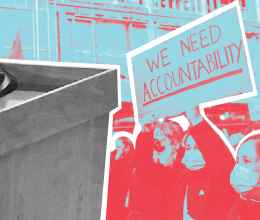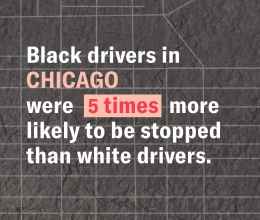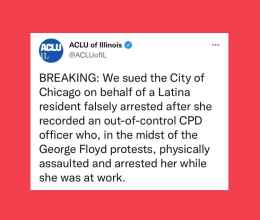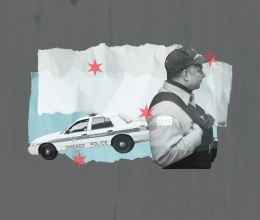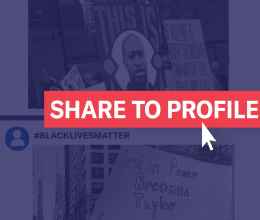
As Illinois moves into its third week under a “stay at home” order issued by the Governor, police across Illinois are being reminded that their role is to build voluntary compliance with the order, not use it as an excuse to make mass arrests. The reminder comes in the form of an open call - issued today by the ACLU of Illinois - to law enforcement across the State of Illinois.
“All of our energies now must be targeted at reducing the spread of COVID-19 and acting in accordance with appropriate public health recommendations,” said Rachel Murphy, Staff Attorney with the ACLU of Illinois. “This public health approach must also consider changes to law enforcement practices, so that we protect both the police and the general public with whom they interact.”
The ACLU points to public health experts’ directions to prevent further spread by reducing the number of opportunities for exposure and educating the public on the importance of social distancing. The call makes clear that by reducing interactions with the public, limiting arrests and focusing enforcement of stay home orders on education and voluntary compliance, police across Illinois can make a valuable contribution to reducing the spread of COVID-19.
Specifically, police are encouraged to reduce stops and arrests by:
- Drastically limiting all contacts - including pedestrian stops and traffic stops - to situations where there is an imminent threat of bodily harm;
- Taking necessary precautions, including practicing social distancing and wearing personal protective equipment (PPE), when they must make contact with a member of the public;
- Only taking individuals into custody as a last resort.
Regarding the enforcement of stay at home orders, the ACLU recommends that police take the following steps:
- Officers will promote compliance with public health orders through education and requests to disperse, not arrests or ticketing. If several attempts at education are not persuasive, officers will seek a cease and desist order before resorting to tickets or arrest.
- Officers will assume individuals walking or driving their cars alone or in small groups are engaging in an essential activity, such as exercise and caring for a pet or family member, and will not question, cite, or arrest those individuals.
- Officers will not set up checkpoints to enforce any public health ordinances, even in the case of extreme emergency.
- As a means to reduce arrests, officers must communicate with a supervisor and obtain approval before making an arrest under the order. Supervisors will first explore whether the officer has already used other means of achieving compliance.
- Officers will follow existing prohibitions on racial profiling.
If Illinois residents are concerned about the way in which their local police are enforcing stay home orders, they can reach out to the ACLU of Illinois at ACLUofIllinois@aclu-il.org.
